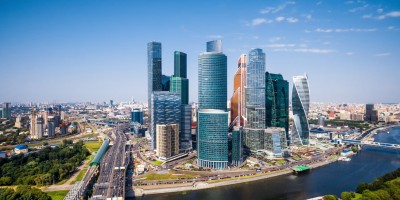-
Россия
Russia — Arbitration or state court?
10 июля 2018
- Арбитраж
- Судебная практика
State commercial court in Russia is named in the Russian language — Арбитражный суд. This name of the state commercial court is often translated into English as Arbitration court. Such translation in its turn often causes actual misunderstanding between the parties, since the Russian party will most probably consider the term “Arbitration court” as a state commercial court and the other (non-Russian) party might consider that it agreed to resolve disputes by arbitration rather than in a state court.
Below are some examples of dispute resolution clauses specified by the parties in commercial contracts that caused actual misunderstanding:
“…if there is no agreement, any disputes and claims between the parties relating to the contract will be resolved by arbitration under the Rules of International Chamber of Commerce in Moscow by one or more arbitrators appointed in accordance with the said rules. The Arbitration court shall use the Russian law.”
“…if a dispute is not resolved within 30 days of written notification of the dispute by one party to the other, anyone of the parties may submit the dispute arising out of or in connection with this agreement shall be finally settled under the Rules of Arbitration of the Moscow City Arbitration Court”.
The wording of such clauses and its translation, specifically translation of the term “Arbitration court” might result in resolution of claims by the state commercial courts in Russia, rather than by arbitration. In such situations failure of the non-Russian party to defend itself in the Russian state commercial courts might lead to serious negative consequences.
One of the well-known arbitration institutions in Russia — the International Commercial Arbitration Court at the Chamber of Commerce and Industry of the Russian Federation recommends the following arbitration clause:
“Any dispute, controversy or claim which may arise out of or in connection with the present contract (agreement) [in case a separate arbitration agreement is concluded a particular contract (agreement) is to be indicated], or the entering into force, conclusion, alteration, execution, breach, termination or validity thereof, shall be settled by arbitration at the International Commercial Arbitration Court at the Chamber of Commerce and Industry of the Russian Federation in accordance with its applicable regulations and rules. An arbitral award shall be final for the parties. It shall not be allowed to submit a motion to a state court to make a decision on the lack of jurisdiction of an arbitral tribunal in connection with the issuance by the arbitral tribunal of a separate order on existence of jurisdiction as a matter of preliminary nature”. (http://mkas.tpprf.ru/en/documents/)
As you can see the full name of the arbitration institution is “International Commercial Arbitration Court at the Chamber of Commerce and Industry of the Russian Federation” and using its short name “Arbitration court” might result in resolution of disputes by the state commercial court.
Another situation is when the parties actually wish to resolve commercial disputes in a state commercial court in Russia but fail to specify the name of the state commercial court correctly. Believe it or not, but there are many lawyers who consider Russian state courts as an effective and less expensive judicial body to resolve commercial disputes as opposed to arbitration.
There was one interesting case mentioned by the Supreme Court of Russia in this regard in its recent overview of court practice on resolving of disputes connected with protection of foreign investors in Russia.
A foreign company filed a claim with the state commercial court in Russia against another foreign company. The court determined that the parties of the dispute concluded prorogation agreement (choice of forum clause) in accordance with which all disputes arising from the specified contract and in connection with it shall be resolved in the courts of general competence of Russia.
The state commercial court of first instance considered that it lacked jurisdiction to resolve this case, because the parties did not agree to resolve their disputes in the state commercial courts, with that the courts of general competence do not resolve commercial disputes between companies in Russia. As a result, the court of first instance returned the claim to the claimant due to the lack of competence of the state commercial court to resolve this dispute.
In the appeal claim the claimant argued that the prorogation agreement was unenforceable, since the court specified by the parties (the courts of general competence) do not consider commercial disputes of legal entities in Russia. The foreign company also argued that there was a close connection of the dispute with the territory of the Russian Federation, and therefore the state commercial court had competence to consider this case.
The appeal court dismissed the ruling of the court of first instance and the case was returned for re-consideration to the court of first instance based on the following grounds.
The appeal court ruled that the enforceable prorogation agreement shall provide possibility to determine the actual intent (true intent) of the parties regarding competence of the state court to resolve disputes.
The appeal court determined that the prorogation agreement agreed by the parties was unenforceable, since such agreement failed to determine the intent of the parties to resolve disputes in a specific court or a system of competent state courts where the specific state court shall be determined based on the rules of internal competence of courts.
The appeal court further ruled that if prorogation agreement is unenforceable the competent court of the Russian Federation shall use general rules of competence of state commercial courts of the Russian Federation set forth in the Commercial procedural code of the Russian Federation.
In this specific case the subject of the disputed transaction was a sale of share in the charter capital of the company registered at the territory of the Russian Federation. The appeal court in this case established close connection of the dispute with the territory of the Russian Federation and ruled that the state commercial court was competent to consider such dispute.
Therefore, if the parties of the contract fail to correctly stipulate the specific state commercial court to consider their disputes in Russia, such prorogation agreement (choice of forum clause) might be considered by the state commercial court in Russia unenforceable and the claim might be returned to the claimant due to the lack of competence of the state commercial court to resolve such dispute.
Conclusions
If you wish to resolve disputes in the state commercial court in Russia, make sure that the full name of the state commercial court is specified correctly.
If you wish to resolve disputes by arbitration in Russia it would be reasonable to use a recommended arbitration clause of respective arbitration institution.
And, of course, be sure to check translation of the English version of the contract into Russian.





















